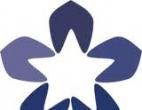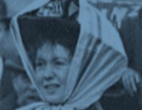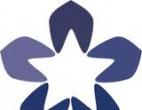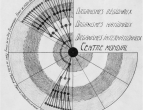Venue: Rubenszaal, Royal Academies for Sciences and Arts of Belgium, Hertogsstraat 1 Rue Ducale, 1000 Brussels. This workshop is kindly hosted by the Royal Academies for Sciences and Arts of Belgium, as part of their Contact Forum series.
The past few years have seen an increasing interest in Natural Language Processing and other text-mining techniques in the humanities. This tendency has been sparked by the distant reading approaches for literary theory, which aim to draw general conclusions on larger amounts of text using computational techniques. This way of tackling data has gained momentum, and many (large scale) projects have been set up in order to meet the expectations of humanities scholars wanting to make sense of the vast amount of digitised data that has become available in public domain, primarily, 18th and 19th but also 20th century publications. For some time NLP has been mainly used for the confirmation of existing historical knowledge, but now many techniques and tools have become more mature, it is time to draw an intermediary balance of NLP and text mining in general and the mining of serial publications in particular. Moreover, it also time to question the phenomenon of ‘scientific serendipity’ and NLP as a set of technologies enabling such serendipity.
This workshop brings together humanists, social scientists and computational scientists who have been working with historical serial texts and/or periodicals: including newspapers, journals, book series, congress series, etc. We are mainly interested in reflections upon completed case-studies: the research results compared to the initial expectations, examples of the phenomenon of ‘scientific serendipity’, the theoretical and heuristical implications of the choices made during the research process, comparisons between NLP and other methods such as Semantic Network Analysis. Last but not least, we will reflect upon graphical approaches to text corpora, such as visualisation methods that are en vogue for exploratory searching, analysis and communication of textual analysis. From n-grams through tree diagrams to word clouds: what are the epistemological implications of using graphic displays developed outside the humanities?
The workshop is free, but registration is required. Please register here.
If you are looking for a place to stay we recommend Motel One Brussels on Rue Royale 120, 1000 Brussels, Belgium.
This workshop is kindly hosted by the Royal Academies for Sciences and Arts of Belgium, as part of their Contact Forum series.
Draft Programme (Last update: 9.9.2017)
Day 1 - Monday 11 September 2017
13:30 - Registration with coffee
14:00 - Welcome: Christophe Verbruggen and Seth van Hooland
Session 1. 14:00-15:30 - Chaired by Seth van Hooland
- Michael Piotrowski (Université de Lausanne), Historical Models and Serial Sources (Abstract | Slides)
- Gunther Martens, Thorsten Ries (Ghent University) and Mike Kestemont (University of Antwerp), A challenge for stylometry and authorship attribution methods: Goethe‘s contributions to the Frankfurter Gelehrte Anzeigen 1772/73 (Abstract | Slides)
- Manfred Nölte and Martin Blenkle (State and University Library Bremen), “Die Grenzboten” on its way to virtual research environments and infrastructures (Abstract | Slides)
15:30 - Coffee
Session 2. 16:00 – 17:30 - Chaired by Sally Chambers
- Julie M. Birkholz & Marianne Van Remoortel (Ghent University), Linked Data as method: Networks and the Periodical (Abstract | Slides)
- Diana Roig Sanz (Open University of Catalonia/ KU Leuven), Laura Fólica (Open University of Catalonia), Ventsislav Ikoff (Open University of Catalonia), Graphical Approaches and Visualization Methods for Mapping Hispanic Literary Journal’s International Modernity (1915-1939) (Abstract | Slides)
- Thomas D’Haeninck (Ghent University), Simon Hengchen (Université Libre de Bruxelles) and Christophe Verbruggen (Ghent University), A genealogy of causes: recognizing social reform topics in 19th century congress series (Abstract | Slides)
19:00 - Conference dinner @ Le Berger by Vini Divini (self-paid)
Day 2 - Tuesday 12 September 2017
Session 3. 10:00-12:00 - Chaired by Christophe Verbruggen
(including coffee break)
- François Dominic Laramée, (Université de Montréal), Text mining a noisy corpus of Ancien Régime French periodicals: a war story (Abstract | Slides)
- Giovanni Colavizza and Matteo Romanello, (Digital Humanities Laboratory, École Polytechnique Fédérale de Lausanne, EPFL) Citation mining of humanities journals: a comparison of the projects Cited Loci and Linked Books (Abstract | Slides)
- Seth van Hooland, Mathias Coeckelbergs, Ettore Rizza and Simon Hengchen (Université Libre de Bruxelles), Scrambling for metadata: using Topic Modeling and Word2Vec to explore the Archives of the European Commission (Abstract | Slides)
12:00 - Lunch
Session 4. 13:00-14:30 - Chaired by Joke Daems
- Mikko Tolonen (University of Helsinki), Language, Location and Form of Newspapers in Finland, 1771-1920 (Abstract | Slides)
- Christophe Verbruggen (Ghent University), Simon Hengchen (Université Libre de Bruxelles), Tecle Zere (Ghent University), Thomas D’Haeninck (Ghent University) and Joke Daems (Ghent University), Workers of the world? A digital approach towards the international scope of Belgian socialist newspapers, 1885-1940 (Abstract | Slides)
- Joris Van Eijnatten (University of Utrecht), In praise of frequency. Generating and visualising the collective mentalities of the past (Abstract | Slides)
14:30 - Coffee
Session 5. 15:00-17:30
Serial Publications and Digital Scholarship: Opportunities and Challenges: a Roundtable Discussion, chaired by Sally Chambers, Ghent Centre for Digital Humanities
- Mining, Visualising and Analysing Historical Newspaper Data: the French National Library Experience, Jean-Philippe Moreux, French National Library
- Serial Publications and Digital Scholarship: Opportunities and Challenges: Position Statements
- Dirk Luyten, CEGESOMA: Experiences from Belgian War Press Digitised
- Marysa Demoor, Ghent University: From index cards to Python: finding the 'missing link'
- Marc D'Hoore, Royal Library of Belgium: Experiences from Belgica Press
- Kaat Wils, Catholic University of Leuven: IMPRESS: Beyond Ideological Conflict: Religion and Free Thought in the Belgian Medical Press (1840-1914)
- KB Lab: Exploring the National Library of the Netherlands’ digital treasure trove, Lotte Wilms, National Library of the Netherlands
- From digital collections to digital scholarship in Belgium: key priorities & next steps: a panel discussion with the audience
17:30 - Reception
Scientific committee: Sally Chambers (Ghent University), Steven Claeyssens (National Library Netherlands), Simon Hengchen (Université libre de Bruxelles), Mike Kestemont (Antwerp University), Frédéric Lemmers (Royal Library of Belgium), Seth van Hooland (Université libre de Bruxelles), Marianne Van Remoortel (Ghent University), Joris Van Eijnatten (Utrecht University), Charles Van den Heuvel (University of Amsterdam), Christophe Verbruggen (Ghent University).
Sponsored by: TIC Collaborative (Belspo-Brain), Research Community Digital Humanities Flanders (FWO), DARIAH-VL (FWO), ReSIC ULB and Ghent Centre for Digital Humanities.
We would also like to thank the Royal Academies for Sciences and Arts of Belgium for supporting this workshop as part of their Contact Forum series.



